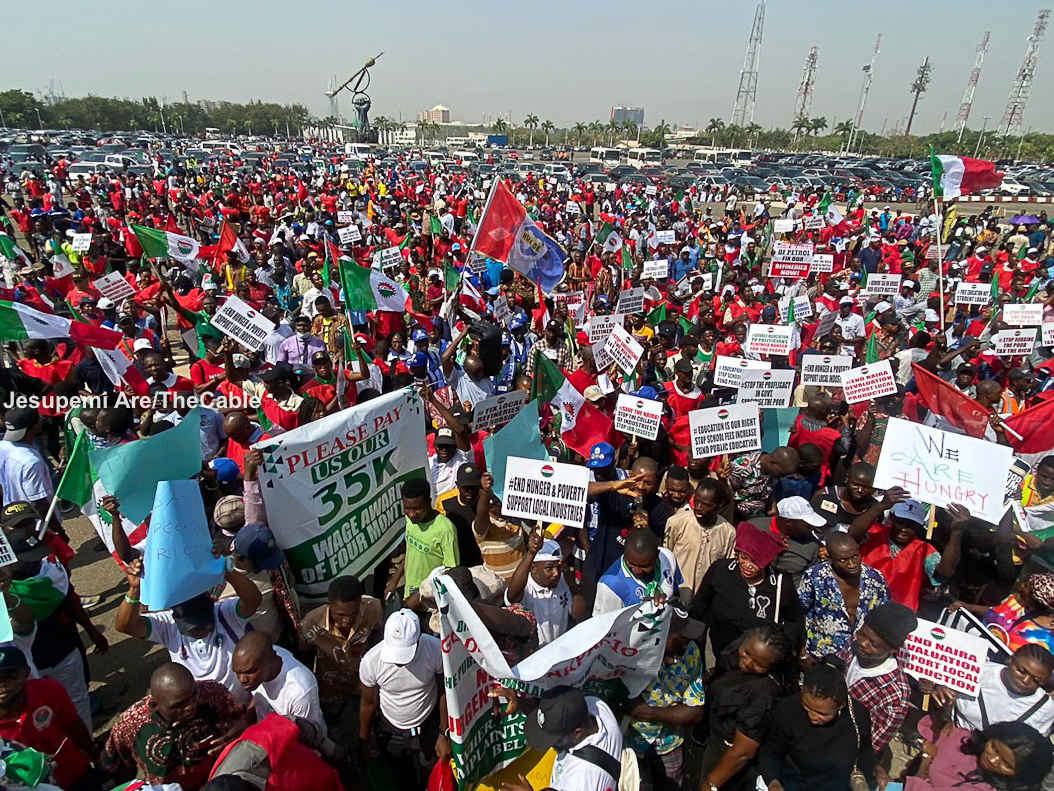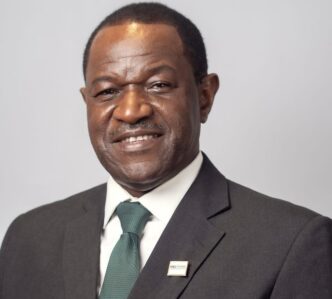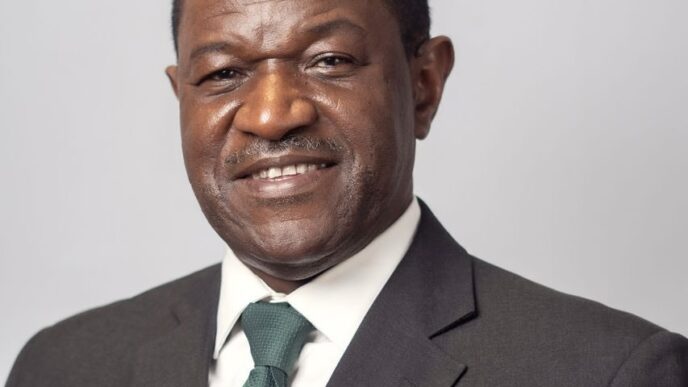BY EBITAN EGBUSON
Nigeria’s health insurance system is making clear, measurable progress toward its destination: universal health coverage by 2030. Despite ongoing challenges, recent developments offer cause for optimism. In December 2024, the National Health Insurance Authority (NHIA) announced a 14% increase in national enrolments, rising from 16.7 million to approximately 19.2 million. Building on this momentum, NHIA has set an ambitious but achievable target for 2025—enrolling an additional 20% of Nigerians.
This upward trend in enrollment reflects real progress toward President Tinubu’s healthcare transformation agenda. NHIA’s reforms are closely aligned with the Health Sector Renewal Initiative, creating a unified, sector-wide push to expand access to affordable healthcare.
The transformative power of health insurance is well documented. Since Bismarck’s pioneering 1883 Sickness Insurance Law, insurance has proven to be the most reliable route to accessible healthcare. In Nigeria’s context, where poverty remains a major barrier, health insurance replaces unpredictable out-of-pocket expenses with a sustainable, pooled funding system. The current expansion of coverage is not merely statistical; it marks a fundamental improvement in the health security of Nigerians.
Advertisement
Even more significant than the enrollment gains is NHIA’s focus on building strong institutional foundations for sustainable growth. While expanding coverage, the Authority is also reinforcing core systems—provider networks, financing mechanisms, and quality controls—to ensure services keep pace with demand. As Director-General Ohiri often emphasizes, NHIA’s ultimate success will not be measured solely by the number of people covered, but by the quality of care delivered across all accredited facilities.
THE CAPITATION BREAKTHROUGH
One of the clearest signs of the ongoing transformation is the 90% increase in capitation fees. After remaining stagnant at ₦750 for 12 years, this long-overdue adjustment, effective April 1, brings provider incentives more in line with current economic realities. It will ensure that healthcare facilities can sustainably participate in the insurance system.
Advertisement
In addition, fee-for-service payments saw an even more dramatic 378% increase. These changes follow extensive actuarial reviews and stakeholder consultations, addressing long-standing concerns from healthcare providers about reimbursement rates falling behind inflation and rising operational costs.
Speaking about the reforms, Dr. Ohiri noted, “With the increase in premiums, we expect that the quality of care for enrollees will be improved and sustained. Providers are expected to deliver good quality care at no additional cost to enrollees, and NHIA will ensure strict enforcement.” In other words, providers now have extra incentive to treat patients registered for health insurance with the full consideration thy deserve.
REDUCING SUFFERING, SAVING LIVES THROUGH HEALTH INSURANCE
The NHIA’s strategy on vulnerable groups is quite innovative. A key priority is to facilitate more enrolment by encouraging the country’s huge population of the poor and vulnerable to sign up for health insurance in order to get the support they desperately need. This focus is reflected in various policies and structures, old and new, in the institution. To this end, the agency had adopted a multi-pronged strategy to extend coverage to Nigeria’s most vulnerable populations. Through targeted financing and specialized benefit packages, the Authority is breaking down barriers that have traditionally excluded the poor from quality healthcare:
Advertisement
1. Basic Health Care Provision Fund (BHCPF): The backbone of primary health care financing, helping essential services reach Nigeria’s poorest communities.
2. Global Fund Partnership: this initiative which runs from 2024 to 2026 integrates HIV and TB treatment into mainstream health insurance across five pilot states.
3. Vulnerable Group Fund: Targeted subsidies that shield pregnant women, children, and marginalized groups from catastrophic healthcare expenses.
4. CEmONC Initiative: Emergency obstetric services that have already saved 2,819 mothers’ lives, with plans for nationwide expansion.
5. Fistula-Free Program: Comprehensive care, including surgery and follow-up, provided to 1,629 women affected by obstetric fistula.
Together, these programs demonstrate NHIA’s commitment to ensuring no Nigerian is left behind in the drive toward universal health coverage.
TACKLING CANCER AND OTHER DISEASES
NHIA’s innovative approach of expanding health insurance into new areas is particularly evident in cancer care. The strategy blends better utilization of available mechanisms with a focus on creating new opportunities for enrolled patients to benefit. As the agency announced while marking World Cancer Day on February 4, cancer remains a major public health challenge in Nigeria, responsible for significant catastrophic health expenditure for individuals, families and society”. Currently, enrollees under the Formal Sector Programmes and the Group Individual and Family Social Health Insurance Programme (GIFSHIP) enjoy oncology services including screenings, diagnostics, surgeries, chemotherapy, radiotherapy, ancillary care, and follow-up services.
Advertisement
NHIA’s efforts to reduce suffering and death caused by cancer incudes providing financial access to critical services including the following:
▪ Screening/Diagnostics: Tumour marker assays, imaging (MRI, CT scans, mammography and ultrasound scan), histology (including Pap smear), and endoscopy.
▪ Surgeries: Wide range of surgeries including mastectomy, prostatectomy, and other oncology-related surgical interventions.
▪ Radiotherapy: Partial (50%) coverage up to ₦400,000, with ongoing efforts to expand reimbursement limits.
▪ Chemotherapy: Access to chemotherapeutics listed in the NHIA medicines tariff drugs and through the NHIA cost-sharing model. These include fully and partially covered:ones as outlined in our benefit package.
Advertisement
The NHIA is also pioneering a new model by using health insurance to deliver donor-funded HIV and tuberculosis programs – a first for Nigeria. Through the Global Fund grant, pilot programs in Kwara, Gombe, Ebonyi, Anambra, and Lagos now provide comprehensive coverage for people living with HIV and TB.
This marks a strategic shift from isolated, disease-specific programs to an integrated health system approach. By merging donor resources with insurance structures, NHIA is building sustainable care pathways. These disease-specific innovations share a common goal: moving beyond fragmented, project-based care models and building a unified, sustainable health system that accelerates Nigeria’s journey toward universal health coverage.
Advertisement
DEEPENING PARTNERSHIPS WITH STATES
NHIA’s collaborative, federalist approach is delivering results. All 36 states now operate their own insurance schemes, with Akwa Ibom’s AriseHealth launch in September 2024 completing the nationwide rollout. This decentralized model allows states to tailor solutions to local priorities while maintaining national quality standards, especially benefiting vulnerable groups through targeted enrollment drives.
Advertisement
Key to this strategy is NHIA’s technical and financial support to states, including capacity building for state health insurance agencies, standardized benefit packages, and integration with national programs such as the BHCPF. By empowering states to manage enrollment and provider networks, NHIA is strengthening the foundation for sustainable, community-driven health coverage – essential for achieving universal coverage by 2030.
ENHANCED COMPLAINTS RESOLUTION
NHIA has strengthened its complaints resolution system to improve service quality. In 2023, the Authority resolved 89% of 2,732 complaints, and in 2024, it resolved 78% of 1,689 cases within 21 days.
Complaints can now be filed through multiple channels, including walk-ins, email, phone, and social media. Cases are first handled at state offices before escalation to the Enforcement Directorate at headquarters. Sanctions range from warnings and enforced refunds—₦2.6 million refunded to beneficiaries in 2024—to the delisting of non-compliant facilities. These efforts have been further supported by reforms such as the 2023 Grievance Protocol and enhanced provider payment rates.
Egbuson is a public affairs analyst based in Abuja.
Views expressed by contributors are strictly personal and not of TheCable.










